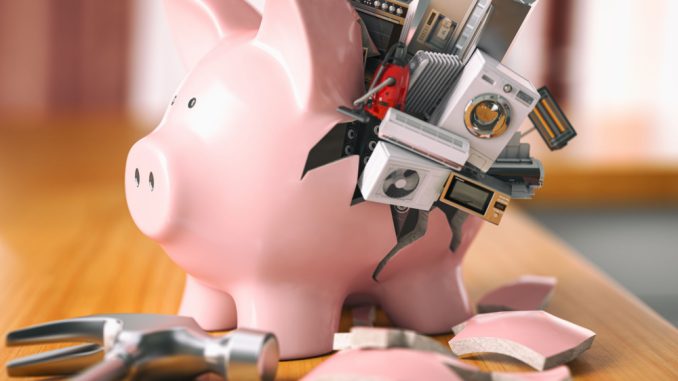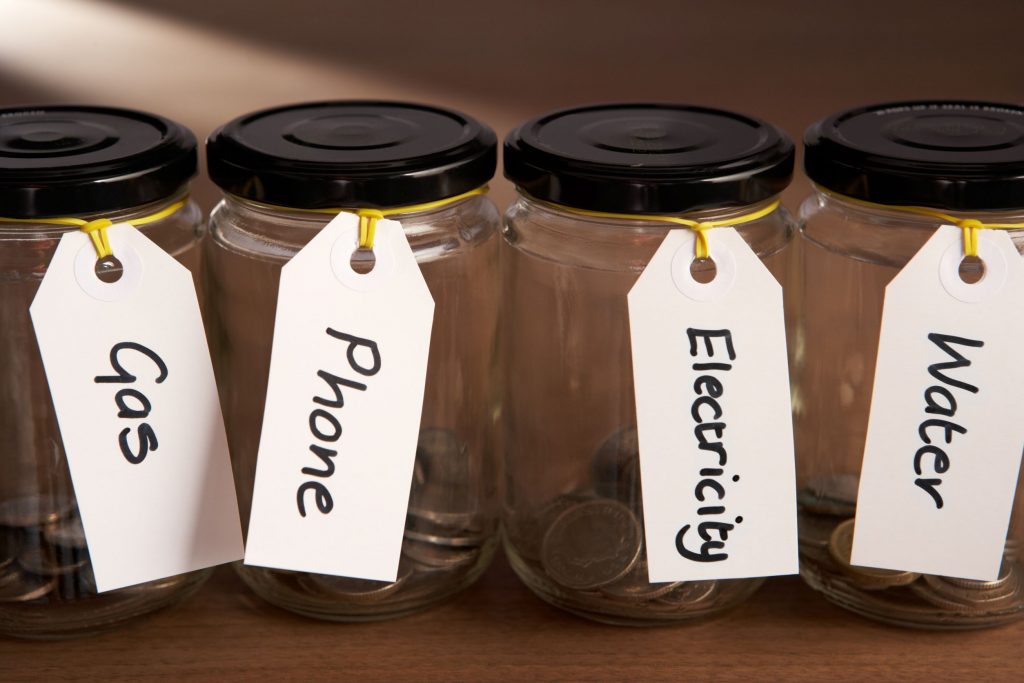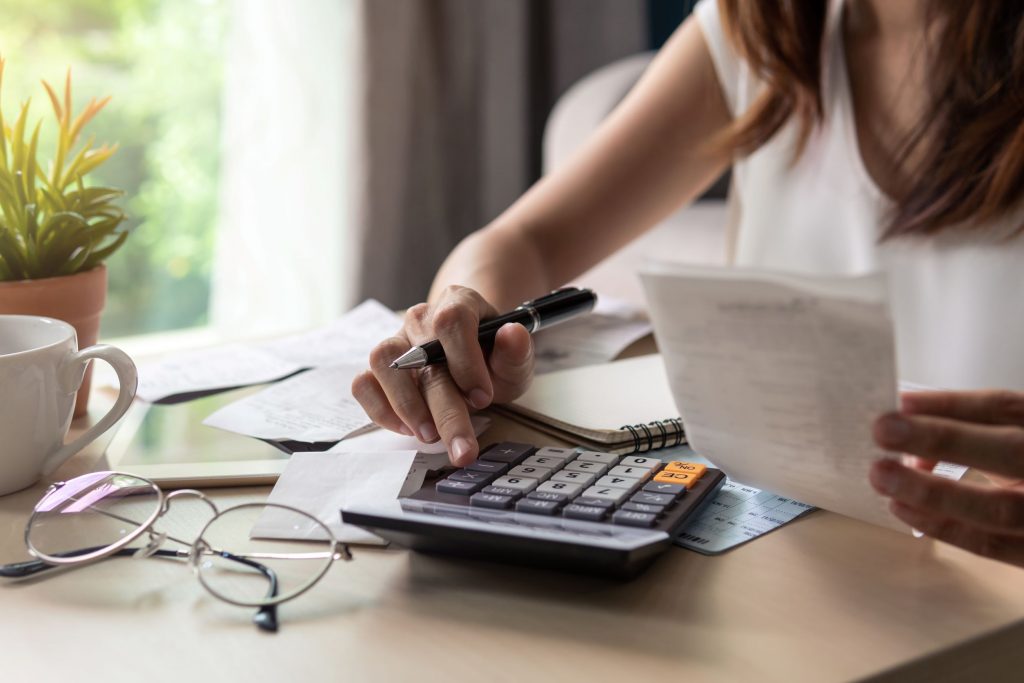
How to save up money? The best ways to start saving.
Money. It’s the most important possession you’ll ever own, and owning more of it is even better.
But, do you often find yourself asking, what are my options? What can I do to save money? How can I put some money aside for the future? It happens to the best of us—we get caught up in spending and forget to save money.
The good news is that there are a lot of money-saving tips out there! With a little bit of planning and creativity, there are plenty of ways that you can save a few dollars here and there. Everything from budgeting wisely to implementing smarter storage solutions, there are many ways that you can start saving sooner rather than later.
You might not think that changing some small things around your house would have a big impact on your savings, but in the long run, it can be the difference between being able to pay the electric bill or taking out a second mortgage. Try these handy tips, and see how much money you save each week.
Here are 15 simple tips on how to save up money in the home.
1. Have a budget so you know what to buy
Budgets are not just for cookbooks — they can also be a great tool for saving money. If you are buying a wedding ring, for example, make sure you know how much you will need to purchase it.
Staying on track and saving money is possible if you are aware of the budget you need to adhere to. Most people don’t keep track of how much they spend – and then wonder how they’ll pay their debts once they’re in debt.
2. Track what you spend & pay by the way
The best way to save money is to know where your money is going. If you keep track of every penny that goes in and out of your account, it will be super easy to see where you can save.
For example, do you usually buy gas at the pump or gas at the store? If you’re like most people, you probably haven’t kept track of the times you’ve filled up that gas bottle. You might have also neglected to note the cost of groceries, gas for your car, or the cost of various household bills such as water, electricity, and internet. Keep track of everything, and you’ll quickly see where there is a lot of spending and where it isn’t too much.
This may sound obvious, but so many people don’t keep track of their spending — and then, once they get in debt, they wonder how they’ll repay their bills. This is a big mistake.
Keeping track of your spending not only helps you stay on track and gain a better understanding of your finances, but it will also help you identify areas of improvement so that you don’t fall into the same habits that are damaging your finances in the first place.
3. Set up a savings account
It’s better to have a savings account with a small amount that you can easily put away each month and take out a small loan when you need it than it is to have no savings whatsoever.
You can also set up an online savings account that you can access on your computer, mobile device, or via the internet. Make sure that you are properly saving for your future, and don’t just throw money into a savings account without thinking about how you’ll use it.
4. Track your investment results
One of the best ways to save money is to increase your savings rate. If you are saving a small amount each month, you are slowly building up a larger amount over time. And the best way to do that is to invest your money.
Several sites and apps will let you track your investments and see how your money is doing. This can help you make informed decisions about your money and protect your savings from going down the drain.
A great way to start tracking your investment results is to invest in something that you know you will value. This could be a vegetable tractor, a sewing machine, a vehicle, or a house. If you find that your investment is working for you, you can potentially save a lot more money over time by progressing to a more expensive investment.
Go for things that will increase in value if you don’t lose interest in them. This may seem like a no-brainer, but so many people don’t track their investments or make sure they are growing. This is a great way to waste money and lose out on good deals that could be making you financially happy in the long run.
5. Look into utilities
This can be a great way to get a feel for what is coming into your house each month and what is going out. There are a variety of ways to go about this. One way is to look into your electricity, water, and other utility usages. Take a look at what is being used.
Another way to save money in the home is to install a modern energy-efficiency device such as a smart light bulb or a solar panel on your roof. When you see how much energy you’re wasting now, you’ll be motivated to start looking into installing more efficient equipment.
Many utilities come with prepaid cards so that you can save money on your monthly bill, but it’s also a good idea to use these cards smartly. If you notice that your water bill is going up, it might be a good idea to look into switching to a cheaper water company. Similarly, if you notice that your electricity bill is higher than it should be, it’s a good idea to check into switching to a less expensive electricity provider.
Finally, members of the military and government workers are often offered special discounts on certain utilities. It’s a good idea to check out these offers before enrolling to make sure that you’re getting a deal.
6. Keep an eye out for sales and discounts
You can often find great deals on items that you regularly purchase, like housewares, electronics, or kitchenware.
The best way to save money in the home is to be smart with your money. Make smart choices when it comes to where you put your money. You can often save a lot by carefully planning your money.
7. Establish regular purchasing rulings
Another money-saving tip is to establish regular purchasing rules with your family and friends. Instead of saying you won’t buy this item until June, set a limit on the number of times you can buy a certain item during a month. This will help you stay on budget while also helping those around you save money too.
8. Research Coupons
Another money-saving tip is to do your research before you purchase a coupon. It’s easy to look online for deals, but many times you’ll find that the deal is only valid in a specific city or state. To make the most of your savings, check the coupon website for your region and city to see if they’re valid there.
9. Avoid debt by doing the important things first
One of the best ways to reduce your monthly expenses and save money over time is to take control of your finances and do things that will save you money in the long run, while also making you feel a sense of achievement.
Make a list of all the things that you know you will do before you have to start making a budget and stick to it. If you are in debt, there are many things you can try to save money on. If you are on a fixed income, take out a small personal loan to cover unforeseen expenses. Refinance your mortgage if possible to lower your monthly payments.
10. Stay frugal
Another way to save up money in the home is to stay relatively conservative with your spending. It may sound counterintuitive, but when it comes to finances, frugality is usually very liberal. This means that rather than splurging on the latest and greatest gadgets and frivolous purchases, you’d be more inclined to save up for the present and future needs of you and your family. This can help you save up some money in the home without even realizing it.
A great way to stay frugal is to use coupons and free trials whenever possible. Most retailers have coupons available online, so it’s sometimes easier to find deals on things like toilet paper and snacks. Coupons can be a great way to save up money in the home without even realizing it.
It is also a good idea to monitor your credit reports and score regularly so that you’re aware of any potential debt loads. This can help you avoid falling into a cycle of debt that could ultimately leave you unemployed or underemployed.
Another way to save up money in the home is to make smart use of your debit or credit card. Simply use it only when necessary, and only for legitimate expenses.
11. Only pay for what you use
Saving can often feel like a constant struggle, as we try our best to save money for the future. While it’s important to save for the future, you should always remember to use your money first. This means that you should always pay off your credit card, make payments on your mortgage, and generally get your financial house in order before you start saving. This may sound like common sense, but I still see so many people putting money away only to spend it later.
Another way to save up money in the home is to make sure that each dollar you spend comes with a useful purpose. This can include things like shopping for the necessities or researching a new product that you want to try out.
12. Revisit your housing options
It’s natural to want to move into a larger house as you get older, but sometimes moving too quickly can be harmful. It can cause you to miss out on important opportunities to save money in the home, like necessary renovations.
Another thing to consider before making a major change to your current home is to look into the impact that it will have on your savings. The best way to save up money in the home is to stick with your gut feeling. If you think that you would benefit from a larger house, stick with it. If you think that you would benefit from a smaller house, consider switching your sights. In either case, save for your new home as you would for your old one.
13. Shop around for the best price
One of the best ways to save money in the home is to shop around for the best deal. You can often find great deals on items that you purchase regularly, like housewares, electronics, or kitchenware.
This can be a very effective way to save up money in the home. Before buying a new home, look into what deals and special offers are available on current homes. You may be able to save a significant amount on a home that’s currently listed for sale.
Another way that you can save up money in the home is by shopping around for appliances, electronics, and other home items. When you’re shopping around for the best price, try looking into buying online. This can often help you find deals that you’d otherwise miss out on.
14. Plan ahead for upcoming expenses
This can be as simple as writing down what you’re going to spend money on and putting it in an envelope for mailing. It can also be as involved as setting up a budget that you can follow strictly. When you have a clear picture of how much money you’re going to have every month, it will be much easier to save up money in the home.
15. Think about your retirement
A significant portion of your income should be saved for your retirement. While it’s important to put away money for your retirement, it’s equally important that you don’t fall into the trap of saving too little. You don’t want to put your retirement savings at risk by saving too little.
The more you save now, the less you’ll need in retirement. The key here is to carefully plan your money. Saving small amounts now will give you more flexibility in the future. You can increase your monthly savings later on if you need to cover an emergency or major surgery.
You can also increase your other retirement plan contributions later on if you get a raise, become unemployed, or have other financial challenges.
Make sure you have a clear idea of how much you’ll need for your annual expenses and how you’ll pay for your goals. If you don’t know the answers to these questions, then don’t worry. You have plenty of time to get it right. Figure out how much you need to save each month and then start saving. You’ll feel so much better when you see the money growing on the horizon. When you save for your retirement, you could potentially save as much as 70% of your income. This can add up to a significant amount of money over time.


